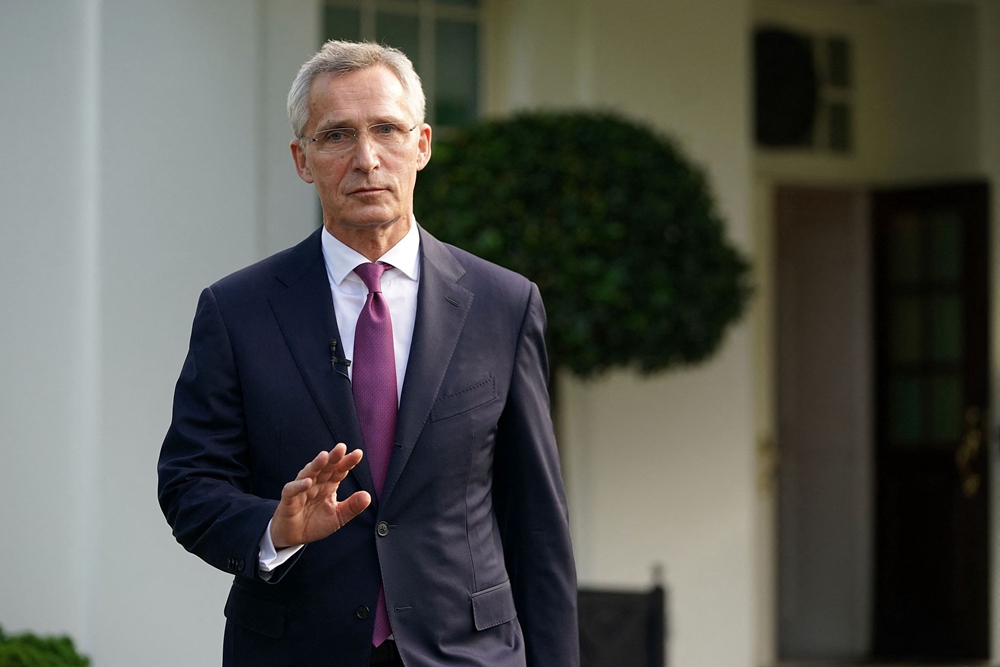
(Clockwise from top center) British Prime Minister Boris Johnson, U.S. President Joe Biden, Canadian Prime Minister Justin Trudeau, Italian Prime Minister Mario Draghi, President of the European Commission Ursula von der Leyen, President of the European Council Charles Michel, Japanese Prime Minister Yoshihide Suga, German Chancellor Angela Merkel and French President Emmanuel Macron sit around the table at the top of the G7 meeting in Carbis Bay, during the G7 summit in Cornwall, Britain, June 11, 2021. /CFP
(Clockwise from top center) British Prime Minister Boris Johnson, U.S. President Joe Biden, Canadian Prime Minister Justin Trudeau, Italian Prime Minister Mario Draghi, President of the European Commission Ursula von der Leyen, President of the European Council Charles Michel, Japanese Prime Minister Yoshihide Suga, German Chancellor Angela Merkel and French President Emmanuel Macron sit around the table at the top of the G7 meeting in Carbis Bay, during the G7 summit in Cornwall, Britain, June 11, 2021. /CFP
French President Emmanuel Macron said on Sunday that the Group of Seven (G7) is not a club that is hostile to China and should work with the Asian economy on multiple fronts, including climate change, world trade and development policies, despite sharing differences.
"China is an economic rival from whom we expect the full respect of (international trade) rules," Macron told a news conference at the end of G7 leaders' summit in Britain.
Some EU leaders, including German Chancellor Angela Merkel, are wary of Cold War-style rhetoric aimed at China and some do not like the term "adversary," which is often used by Washington when referring to Beijing, the Financial Times reported.
Italian Prime Minister Mario Draghi also urged the G7 not to cause undue offense to China, and stressed the need to cooperate with it, according to the Guardian.
On China, a joint communique of the G7 did not fail to mention issues such as Xinjiang, Hong Kong, Taiwan and the East and South China Seas, in the name of "upholding the rules-based international system and international law," despite pledging to cooperate with China to tackle "shared global challenges" like climate change and biodiversity loss.
In an earlier statement, a spokesperson for the Chinese Embassy in the United Kingdom said, "The days when global decisions were dictated by a small group of countries are long gone."
Martin Jacques, a senior fellow at Cambridge University, told Xinhua that it is not surprising that the "greatly diminished" G7 took a very negative view about China.
The G7 would be making a "mistake" if they seek to exclude or contain China in the face of global challenges, he said.
"I think it's a mistake for the G7 to do what they did. They should be seeking ways of developing cooperation with China, not thinking to contain or rebuff China."

NATO Secretary General Jens Stoltenberg arrives to speak to reporters outside of the West Wing following a meeting with U.S. President Joe Biden at the White House in Washington, D.C., June 7, 2021. /CFP
NATO Secretary General Jens Stoltenberg arrives to speak to reporters outside of the West Wing following a meeting with U.S. President Joe Biden at the White House in Washington, D.C., June 7, 2021. /CFP
Jens Stoltenberg, secretary general of the North Atlantic Treaty Organization (NATO), said Monday there is no new Cold War with China but the Western allies will have to adapt to the challenge of Beijing's rise.
"We're not entering a new Cold War and China is not our adversary, not our enemy," Stoltenberg told reporters following a NATO leaders' summit, a day after the G7 meeting.
Read more:
At G7, democracies are failing
The G7 Summit communique pushes for a new cold war against China
(With input from Xinhua, Reuters)

